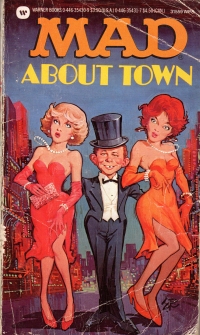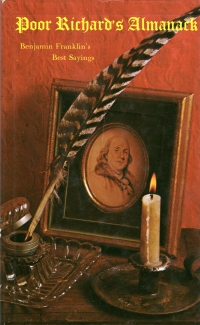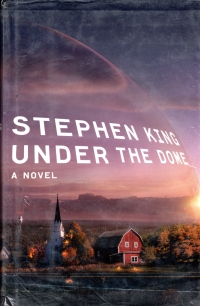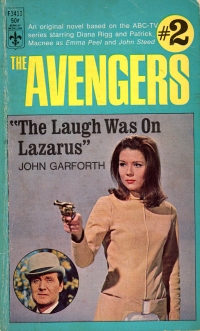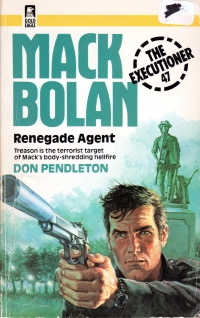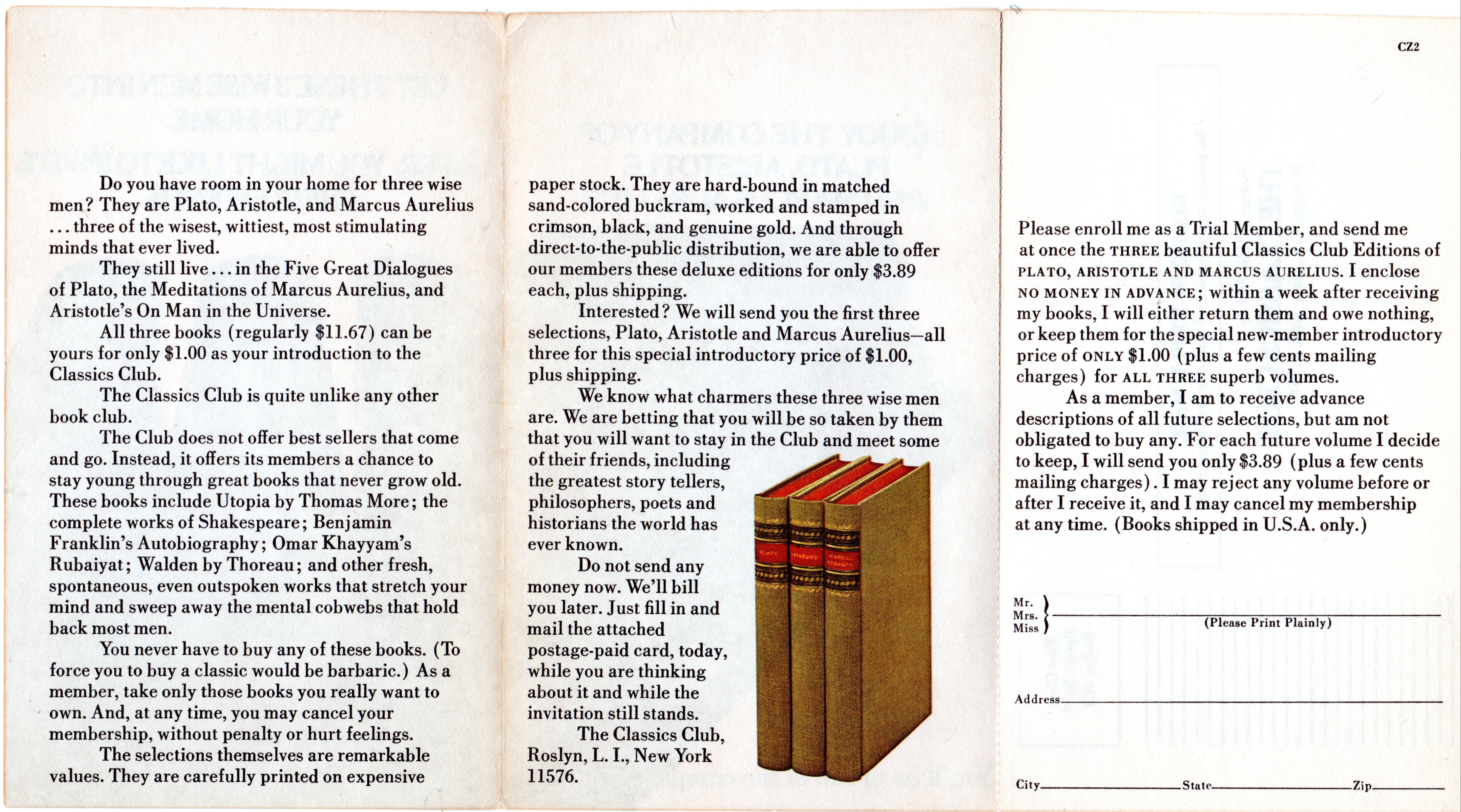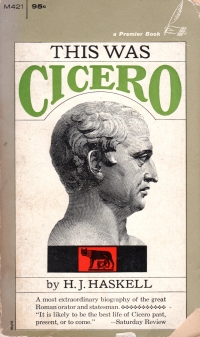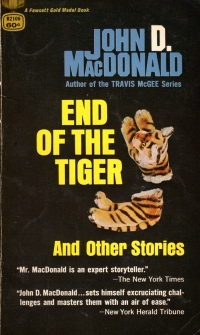 This book is a collection of short stories MacDonald wrote for various slicks throughout the 1950s. Although some of them feature a crime, others do not, so they show the range of things MacDonald could make interesting.
This book is a collection of short stories MacDonald wrote for various slicks throughout the 1950s. Although some of them feature a crime, others do not, so they show the range of things MacDonald could make interesting.
The collection includes:
- “Hangover”: As a man awakens from a night of overindulging at a corporate function, he remembers the events that led up to his firing and worse.
- “The Big Blue”:An experienced fisherman regrets agreeing to sharing a charter boat with two companions, a blowhard and a weak young man who can’t shake the blowhard. Very similar to Hemingway’s “The Short Happy Life of Francis Macomber”.
- “End of the Tiger”: The courtship of a coarse young man and a woman ends after his cruelty to the family’s chicken.
- “The Trouble with Erica”: A business partner protects his young partner from a disastrous courtship with a woman prone to seduction by seducing her.
- “Longshot”: A clerk at the horse track watches as another crooked clerk runs into trouble when betting out of the drawer.
- “Looie Follows Me”: A young man in the country has his world turned upside down when his parents take in a troubled youth from the city for a couple of weeks.
- “Blurred View”: A man who murdered his actress wife is caught when her film making friends recreate the murder in blurry photographs and pretend to blackmail him.
- “The Loveliest Girl In The World”: A married middle-aged photographer breaks off contact when he gets to close to one of his models.
- “Triangle”: A businessman encourages a female colleague with whom he’s too close to confess to his wife her attraction to him to convince his wife they’re not having an affair; this is to cover his actual affair with another woman.
- “The Bear Trap”: A man on a road trip with his wife and children remembers his girlfriend from his youth who was killed by a bear in a cage.
- “A Romantic Courtesy”: A rich rancher meets a woman he wooed in his youth who abandoned him for a man with prospects and an unhappy marriage.
- “The Fast and Loose Money”: A pair of skimming angle-shooters are caught by their former commanding officer who is now a Treasury agent.
- “The Straw Witch”: An assassin thinks of a folk tale told to him by a dying comrade a long time ago as a difficult assignment goes bad.
- “The Trap of Solid Gold”: A young up-and-coming corporate man finds himself caught up in a vicious fiscal tailspin while trying to keep up the appearance of successful executive on the small salary he makes.
- “Afternoon of the Hero”: A famous comedian, atop the world, reacts to a story about him in the media that says he’s very afraid by making light of it, hiding his actual fear.
The collection is very solid, and MacDonald makes the main characters in the stories very approachable. It’s been far too long since I’ve read MacDonald (2012? Really?), but it won’t be long until I read more. He’s a joy to read, and the length of his books don’t make you think about how long they are. He balances description, plot, and dialog better than most writers I can think of, and his stories–even his short stories–have pretty interesting plots.
Recommended.
Books mentioned in this review:






